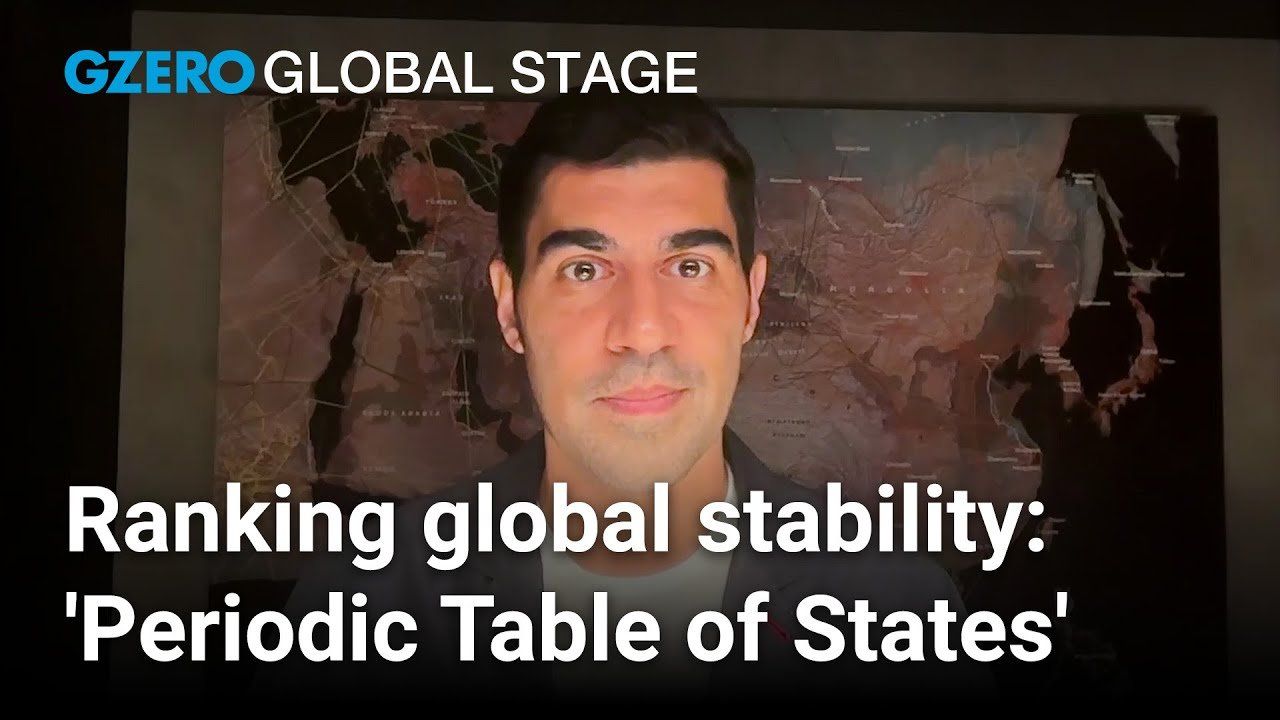March 13, 2025
What is the strongest country in the world? Parag Khanna, bestselling author and CEO of the data analytics company AlphaGeo, argues that the answer isn’t as obvious as the United States or China.
Many indices rank nations based on GDP, military strength, population, or freedom. Khanna and his team have created a new one that includes all those factors and more. The goal is to provide investors, academics, and even digital nomads a clearer sense of how safe, resilient, and stable a nation is.
Khanna calls it the Periodic Table of States, and ranks nearly 200 countries on key factors like “strength,” which is a measure of might, wealth, and resources, alongside “stateness,” a geopolitical term referring to authority and governance.
Which country came out on top? Switzerland. Germany was a close second. And the US and China didn’t make the top 5.
GZERO’s Tony Maciulis spoke to Khanna about the table, why democracy doesn’t necessarily mean stability, and where the US is heading politically in the era of President Trump 2.0.
More For You
Most Popular
With the US leading production and China driving new reactor development, Bank of America breaks down the who, what, where, when, and why behind nuclear’s return. Stay ahead of global energy trends with Bank of America Institute.
Chris, an Army veteran, started his Walmart journey over 25 years ago as an hourly associate. Today, he manages a Distribution Center and serves as a mentor, helping others navigate their own paths to success. At Walmart, associates have the opportunity to take advantage of the pathways, perks, and pay that come with the job — with or without a college degree. In fact, more than 75% of Walmart management started as hourly associates. Learn more about how over 130,000 associates were promoted into roles of greater responsibility and higher pay in FY25.
Last week, at the Munich Security Conference, a group of global technology providers, including Microsoft, announced the Trusted Tech Alliance — committed to shared, verifiable principles for trusted, transparent, and resilient technology across borders. At a moment of economic volatility and zero-sum technological competition, countries and customers are demanding greater accountability from technology providers. The Alliance addresses this by bringing together companies from across Africa, Asia, Europe, and North America around shared commitments: transparent governance, secure development practices, supply chain oversight, open digital ecosystem, and respect for the rule of law — ensuring the benefits of emerging technologies strengthen public trust while driving job creation and economic growth. Explore the Trusted Tech Alliance here.
© 2025 GZERO Media. All Rights Reserved | A Eurasia Group media company.
